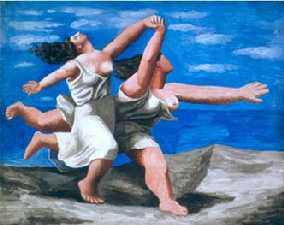CLARA CAMPOAMOR. LAS MUJERES VOTAMOS, LAS MUJERES DECIDIMOS.
Nuestra compañera Cristina Hernández Sarmiento, ha realizado esta biografía de la mujer que día a día sigue presente en nuestra historia. Hoy más que nunca.
SHORT BIOGRAPHY OF CLARA CAMPOAMOR
Clara Campoamor, a Spanish politician and feminist defender of women
rights, was born in Madrid, on 12th February 1888. A child from a working-class family, she began to work as a seamstress at
the age of 13, after her father's death, and later in various jobs until she
entered Unsiversity to study Law and where she approached the Socialist Party
and founded a Female University Association, earning her degree at the age of
36.
With the arrival of the Second Republic in 1931, she got a deputy seat for
Madrid for the Radical Party, being one of the first three women to get it. Her
strong advocacy for women rights, and in demanding of equal vote for women, she
confronted not only the male members of the assembly but also one of the two
other women, Victoria Kent, who felt that the time was not right to ask for
equality because the vote of women coud be influenced by political
conservatives and catholics. Despite the opposition, woman's suffrage was
narrowly approved in the new Constitution.
Clara left her party in protest at its abandonment of the feminist cause,
and, surprisingly, she wasn't re-elected, losing her seat in Parlamient in
1933. She wrote several books including 'My mortal sin. Women's vote and me'.
In 1936 after the National Uprising she was exiled in fear of her life, not
being allowed to come back to her country unless she apologized for her past criticism
of the Catholic Church
and gave up names of her allies. As exiled and while working in a Law Firm,
she continued writing about feminism and her experiences in politics.
Clara Campoamor died in exile in Lausanne in 1972.


Comentarios